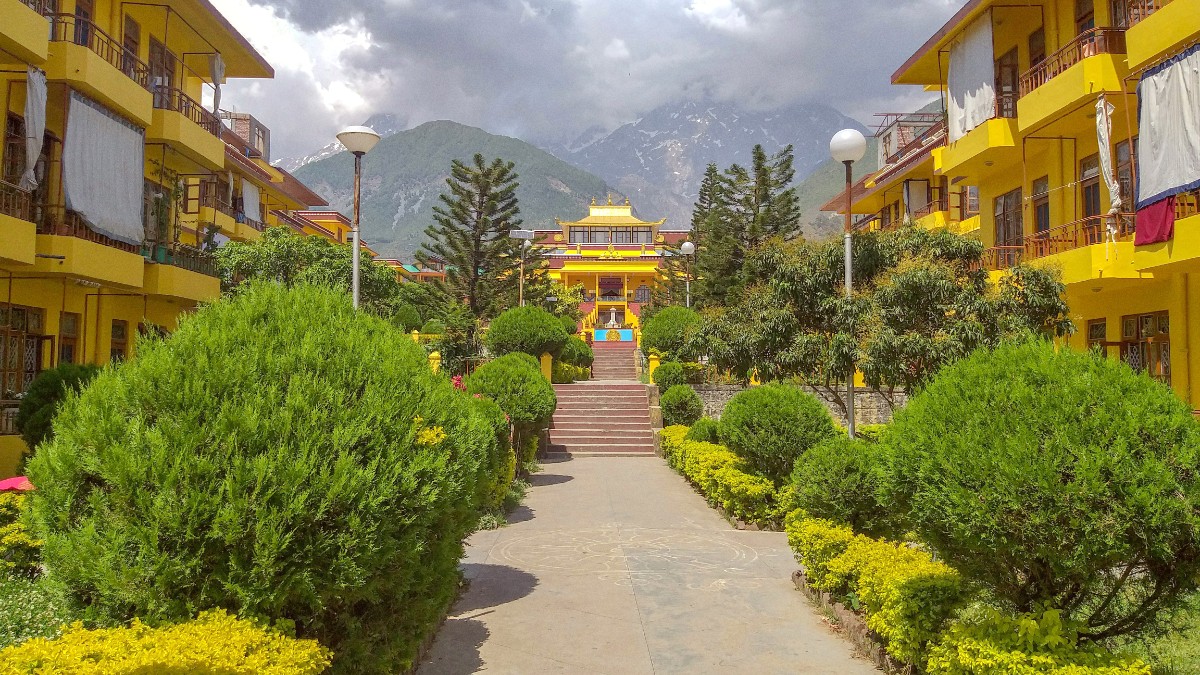
India
The Dhauladhar range and surrounding forests form ecosystems. Local authorities and environmental groups conserve these natural habitats.
Waste management presents a challenge in the Himalayas. Plastic waste remains prevalent.
Water scarcity surfaces in Dharamsala, notably during dry seasons. Mindful water usage is helpful.
Embracing eco-friendly practices protects Dharamsala's pristine Himalayan environment.
Embrace 'Leave No Trace' principles, especially when trekking or visiting natural areas.
Seek out eco-friendly accommodation and tour operators.
Consider offsetting the carbon footprint of your flights and long-distance travel.
Embrace sustainable practices by choosing ethically produced items.
Select tour operators with a commitment to sustainable and ethical practices. G Adventures specializes in responsible small-group tours globally.
Learn MoreA portion of your travel expenses can support vital conservation efforts. Visit The Rainforest Site (GreaterGood) to contribute.
Support NowAlways carry your own reusable water bottle. Many locations offer refill stations, reducing plastic waste.
Interacting respectfully with the local culture builds a foundation for responsible travel in Dharamsala.
Support local Tibetan and Himachali cultural initiatives and institutions. Organizations like Norbulingka Institute preserve traditional arts and language.
Engage with locals with deference to their customs and traditions.
Avoid intrusive photography, notably during private moments or religious ceremonies.
Maintain silence and a respectful demeanor inside religious premises.
Avoid public displays of affection, as they are not culturally accepted.
Refrain from openly discussing sensitive political topics, especially regarding Tibet, unless in a trusted, private environment and initiated by a local.
Do not touch children's heads; the head holds as sacred.
Your travel choices directly shape the local economy of Dharamsala and its communities.
Choose locally owned guesthouses for accommodation to support residents directly.
Eat at family-run restaurants and dhabas to experience authentic cuisine and help local businesses thrive.
Purchase handicrafts and souvenirs directly from local artisans, ensuring fair returns for their work.
Choose local shops, restaurants, and transport providers over international chains or larger, non-local establishments.
Eating at local dhabas supports small businesses and families directly in Dharamsala.